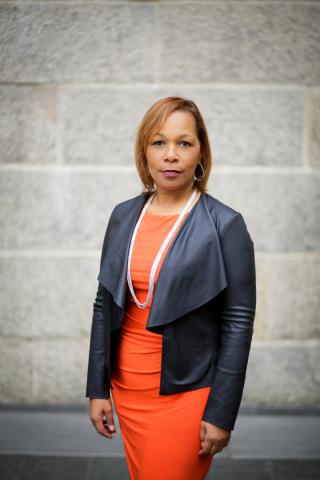
Judith Browne Dianis is executive director of Advancement Project National Office, a national racial justice organization working to confront and dismantle structural racism.
Posts By This Author
Want Safer Schools? Remove the Police
IT IS TIME for radical change. This summer Black students in Oakland, Calif., demonstrated they deserve it—schools without police. After a 10-year organizing effort, students of the Black Organizing Project were victorious. The Oakland school board voted unanimously to pass the “George Floyd Resolution to Eliminate the Oakland Schools Police Department,” which will dismantle the school police department and redirect $2.5 million to pupils’ needs. Like students across the country, Oakland scholars want to reimagine safety because too many of them have been dehumanized, disrespected, and criminalized by police in their schools.
Following the brutal murder of Floyd at the hands of Minneapolis police officers in May, the United States has seen a surge in progress in the movement for police-free schools. While this demand is not new, the moment made it real.
The Minneapolis school board led the way when it unanimously voted to end its contract with the police department. Then Portland. Then Denver. Then Charlottesville, Rochester, Milwaukee, and San Francisco.
Fueled by Black and brown students, the police-free schools movement asserts that removing police from schools will increase students’ chance to thrive and feel safe from state violence. The presence of police in schools increases the chances of youth interaction with the criminal legal system. Whether we call them “school resource officers” or police, they enforce the criminal code. Moreover, police too often aggressively suppress what they perceive to be disobedience or disorder. They ticket, arrest, and violently impose their will upon young people.
What Faith Leaders Can Do To Help End the School-to-Prison Pipeline
September is often associated with the celebratory beginning of a new school year. It’s a time of hopeful anticipation for students, parents, and teachers filled with new school supplies and new friends.
In many communities, however, the beginning of the school year is a cause for concern and anxiety.
Instead of hallways filled with artwork and sports trophies, many students will walk into prison-like environments complete with metal detectors, and the presence of police and armed security officers. These officers have more than a chilling effect. They also have the authority to arrest students, often for minor misbehavior. When you couple the harshness of the school environment with zero tolerance policies that criminalize children’s non-violent infractions like being late to class, violating a dress code, or even chewing gum, one can begin to see the school discipline crisis.
The patchwork of overly harsh disciplinary policies that funnel children directly from the classroom to the juvenile justice system is referred to as the school-to-prison pipeline. In schools across America, students, especially students of color, who should be sent to the guidance counselor to find out what’s really wrong end up at the police station. These policies are expensive, unjust, and ineffective. They also lower academic achievement, lead to dropout, and do little to make schools safer.
Even more troubling, we find that the rules are different for children of color, who are punished more often and more severely than white students for the same offenses. These students are not behaving any worse than others, but they are disciplined at a higher rate because of racial bias. These same patterns we see in schools are also playing out in the criminal justice system: African Americans are imprisoned at higher rates and given more severe sentences than whites for the same offenses.
The school-to-prison pipeline is a moral and racial justice crisis. Solving the problem will require an all-hands-on-deck solution.

